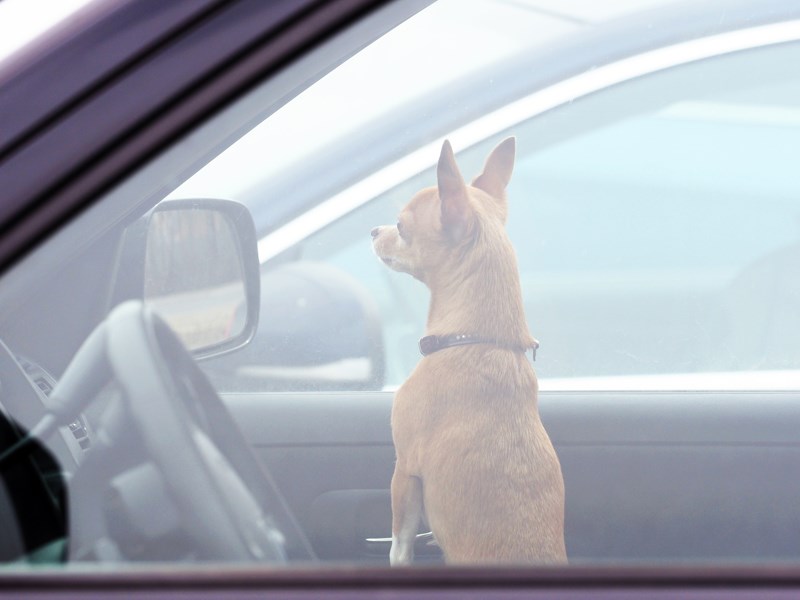Although most people are aware that animals should never be left in a hot car, many pet owners do not realize just how quickly the vehicle can become a death trap, according to BC Society for the Prevention of Cruelty to Animals (BC SPCA). On Thursday, July 4, the non-profit animal welfare group launched its #NoHotPets campaign to remind the public of the severe threat hot weather has for animals, and what to do if a distressed pet is observed.
“Even on a cloudy day, parked in the shade with the windows rolled down, a vehicle can reach temperatures that put animals in peril in just 10 minutes,” said BC SPCA general manager of communications Lorie Chortyk. “Dogs can’t release heat from their bodies in the same way that humans can; they can only dissipate heat by panting and through the pads of their paws, so their internal temperatures reach dangerous levels very quickly.”
BC SPCA receives hundreds of calls each year to rescue dogs in distress in hot vehicles, according to Chortyk.
BC SPCA Powell River District and Branch also receives a large number of distress calls, according to branch manager Tara Daniels.
“It’s very much an issue within Powell River,” she said. “And it’s important to remind people that as the weather gets warmer our pets really are better at home.”
Daniels said she believes most people mean well, but do not understand the facts.
“A lot of times our intentions are to run into a place quickly; we’re only going to be two minutes,” said Daniels. “The problem is, even if you’re parked in the shade, if it's a hot day, it’s not good enough.”
BC SPCA urges people to take the following steps if they see an animal in a hot car:
1. Note the licence plate, vehicle colour, make and model and ask managers of nearby businesses to page the owner to return to their vehicle immediately.
2. If the animal is in distress, call the police, RCMP, local animal control agency or the BC SPCA call centre at 1.855.622.7722 as soon as possible. The call centre is open seven days a week, Monday to Friday from 9 am to 5:30 pm, and Saturdays and Sunday between 9 am and 5 pm. Emergencies outside of those hours should be reported to the RCMP.
“We also encourage people to keep our call centre number in their phones so they can access it easily if they see an emergency situation,” said Chortyk. “Members of the public should not attempt to break a window to free a pet themselves. Not only can this be dangerous for the animals if they are struck by glass, but it is also illegal and puts the good Samaritan on the wrong side of the law.”
Signs of heatstroke in an animal include exaggerated panting, or the sudden stopping of panting, rapid or erratic pulse, weakness, lack of coordination, convulsions, vomiting and collapse. If an animal is showing these signs, BC SPCA recommends it be moved to a cool, shady place and wet with water, but not ice, which constricts blood flow and discourages cooling. The animal should be fanned and allowed to drink some cool water or lick ice cream if water is not available, and taken to a veterinarian as soon as possible.
Daniels said she believes with increased awareness, fewer pets will be put at risk.
“I feel like things are getting a little bit better,” she said. “Education is a huge factor. And Powell River is such an amazing dog community.”
To learn more and to order a #NoHotPets car decal, go to spca.bc.ca/nohotpets.



